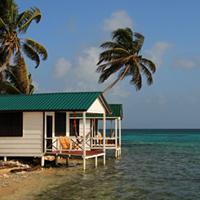Expats Talk about Health Insurance and Healthcare in Bali, Indonesia
Last updated on May 06, 2023
Summary: There are several hospitals and clinics in Bali, Indonesia, including BIMC Hospital, Rumah Sakit Umum Sanglah, and RSUP Sanglah. Emergency services in Bali are generally reliable, and ambulances can be called by dialing 118. The quality of medical care in Bali is generally considered to be good, though it may not be as advanced as in the United States.
How are healthcare services Bali?
When we asked expats and global nomads about the quality of medical care in Bali, they replied:
"It's very important to have health insurance and if you're on an international scheme, then have the documents on the ready to give proof. If you don't have healthcare insurance, be prepared to pay a pretty penny when sorting health bills," said one expat.
"Healthcare services in Bali, consist of a mix of public and private facilities, catering to both locals and tourists. The public healthcare system includes government-run hospitals, community health centers, and smaller clinics, which offer basic medical services at affordable rates. However, these facilities may not always meet international standards, and the quality of care can vary significantly. On the other hand, private healthcare facilities in Bali are generally of higher quality, with modern equipment and well-trained medical staff. These facilities cater to a wide range of medical needs, including general practice, specialist consultations, dental care, and emergency services. Many private hospitals and clinics in Bali have affiliations with international healthcare providers, ensuring a high standard of care for patients. Despite the availability of quality private healthcare services, it is essential for visitors to Bali to have comprehensive travel insurance, as medical costs can be high, and not all services may be covered by local insurance providers. Additionally, for complex medical procedures or emergencies, patients may need to be evacuated to nearby countries like Singapore or Australia, which can be costly. Pharmacies are widely available throughout Bali, offering a range of over-the-counter and prescription medications. However, it is advisable to bring essential medications from home, as not all drugs may be available or may be of different quality. Overall, healthcare services in Bali are accessible and cater to various needs, but it is crucial for visitors to be prepared and have adequate insurance coverage to ensure they receive the best possible care," remarked one expat in Bali.
What are medical services in Bali like?
Please login to continue reading this article.
Not a member? Join Today (it's free).

With over 2 million bookable vacation rentals, Vrbo connects homeowners with families and vacationers looking for something more than a hotel for their trip. The Vrbo community offers families an array of rental property types such as condos, cabins, lake rentals, beach houses, and more. Discover properties in destinations that everyone dreams of visiting.

With over 2 million bookable vacation rentals, Vrbo connects homeowners with families and vacationers looking for something more than a hotel for their trip. The Vrbo community offers families an array of rental property types such as condos, cabins, lake rentals, beach houses, and more. Discover properties in destinations that everyone dreams of visiting.
 VRBO
VRBOLearn More
With over 2 million bookable vacation rentals, Vrbo connects homeowners with families and vacationers looking for something more than a hotel for their trip. The Vrbo community offers families an array of rental property types such as condos, cabins, lake rentals, beach houses, and more. Discover properties in destinations that everyone dreams of visiting.
 VRBO
VRBOWith over 2 million bookable vacation rentals, Vrbo connects homeowners with families and vacationers looking for something more than a hotel for their trip. The Vrbo community offers families an array of rental property types such as condos, cabins, lake rentals, beach houses, and more. Discover properties in destinations that everyone dreams of visiting.
Learn More

With over 2 million bookable vacation rentals, Vrbo connects homeowners with families and vacationers looking for something more than a hotel for their trip. The Vrbo community offers families an array of rental property types such as condos, cabins, lake rentals, beach houses, and more. Discover properties in destinations that everyone dreams of visiting.

With over 2 million bookable vacation rentals, Vrbo connects homeowners with families and vacationers looking for something more than a hotel for their trip. The Vrbo community offers families an array of rental property types such as condos, cabins, lake rentals, beach houses, and more. Discover properties in destinations that everyone dreams of visiting.
About the Author
 Joshua Wood, LPC joined Expat Exchange in 2000 and serves as one of its Co-Presidents. He is also one of the Founders of Digital Nomad Exchange. Prior to Expat Exchange, Joshua worked for NBC Cable (MSNBC and CNBC
Primetime). Joshua has a BA from Syracuse and a Master's in Clinical and Counseling Psychology from Fairleigh Dickinson University. Mr. Wood is also a licensed counselor and psychotherapist.
Joshua Wood, LPC joined Expat Exchange in 2000 and serves as one of its Co-Presidents. He is also one of the Founders of Digital Nomad Exchange. Prior to Expat Exchange, Joshua worked for NBC Cable (MSNBC and CNBC
Primetime). Joshua has a BA from Syracuse and a Master's in Clinical and Counseling Psychology from Fairleigh Dickinson University. Mr. Wood is also a licensed counselor and psychotherapist.
Some of Joshua's articles include Pros and Cons of Living in Portugal, 10 Best Places to Live in Ireland and Pros and Cons of Living in Uruguay. Connect with Joshua on LinkedIn.
Additional Information:
- Expat Guide to Bali
- Healthcare & Health Insurance in Bali
- Fun Classes for Expats Living in Bali
- Public Transportation in Bali
- Best Markets in Bali
- Retire in Bali Guide
- 7 Tips for Living in Bali
- Pros & Cons of Living in Bali
- Health Care in Bali
- Cost of Living in Bali
- Discover the Best of Bali
- Healthcare & Health Insurance in Indonesia
- Best Places to Live in Indonesia
- Pros & Cons of Living in Indonesia
- How to Get a Driver's License in Indonesia
- Pros and Cons of Living in Indonesia 2024
- 2024 Guide to Moving to Indonesia

 Bali, Indonesia
Bali, Indonesia

